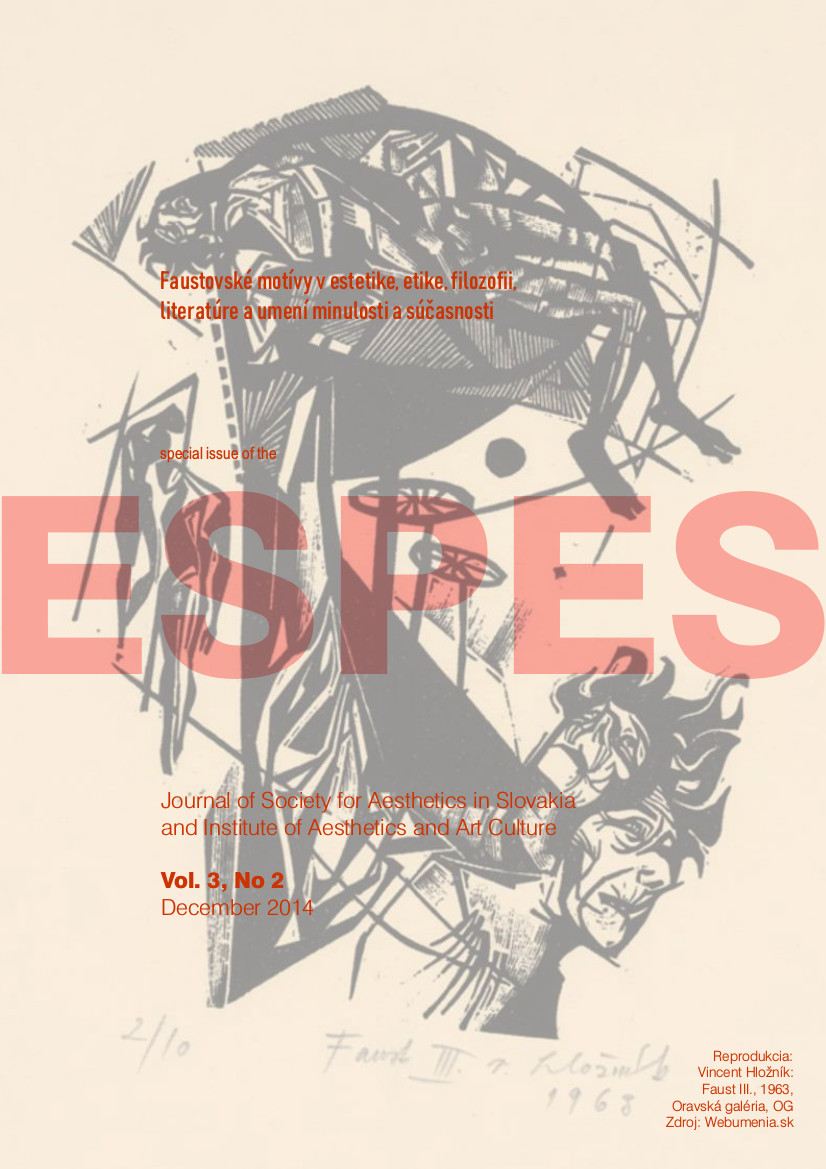Hudobné kontexty románu Thomasa Manna Doktor Faustus a jeho reflexia v slovenskom hudobnom prostredí
The musical contexts of Thomas Mann's novel Doctor Faustus and his reflection in the Slovak musical environment
Author(s): Tatiana PirníkováSubject(s): Literary Texts, Music, Aesthetics
Published by: Spoločnosť pre estetiku na Slovensku a Inštitút estetiky a umeleckej kultúry Filozofickej fakulty Prešovskej univerzity v Prešove
Keywords: Analysis;interpretation;compositional process;installation
Summary/Abstract: A well-known novel Doctor Faustus written by Thomas Mann is situated in social and artistic environment of first half of the 20 th century. It primarily concentrates on the particularity of the development of musical medium and inspires to rich reflections. The author of the paper tries to summarize, compare and closely specify opinions of Slovak music theorists, aestheticians and composers. One of first thinkers who introduced the nature of Mann’s novel as mirrored by its era was Ján Albrecht. Rudolf Brejka aimed to concentrate on description of the essence of artistic portrayal of presented problem. He drew attention to the fact that twelve-tone technique in this work of art is different from thinking and work of Schönberg. Vladimír Fulka dealt with a summarization of frequency of quotes and influence of Adorno’s texts on the diction of passages in the novel connected with problems of music. Vladimír Godár contributed to discussion about importance and contents of the novel by a detailed summary of all poetic inspirations which were used in the fictitious work of protagonist of the novel – composer Adrian Leverkün – and were really set to music by other composers. Last but not least, Juraj Hatrík presented syntagmatisation of symbolic of evil in Alfred Schnittke’s cantata, directly related to Mann’s description of fictitious works. At the same time he pointed out connections of Thomas Mann’s Doctor Faustus in relation to another work of a German author – novel The Glass Bead Game by Hermann Hesse. In the last part the author thinks about cultural and social-political climate and dispositions of composed music in Slovakia thanks to which composition principles of Second Viennese School have not been fully expressed.
Journal: ESPES
- Issue Year: 3/2014
- Issue No: 2
- Page Range: 61-70
- Page Count: 10
- Language: Slovak

